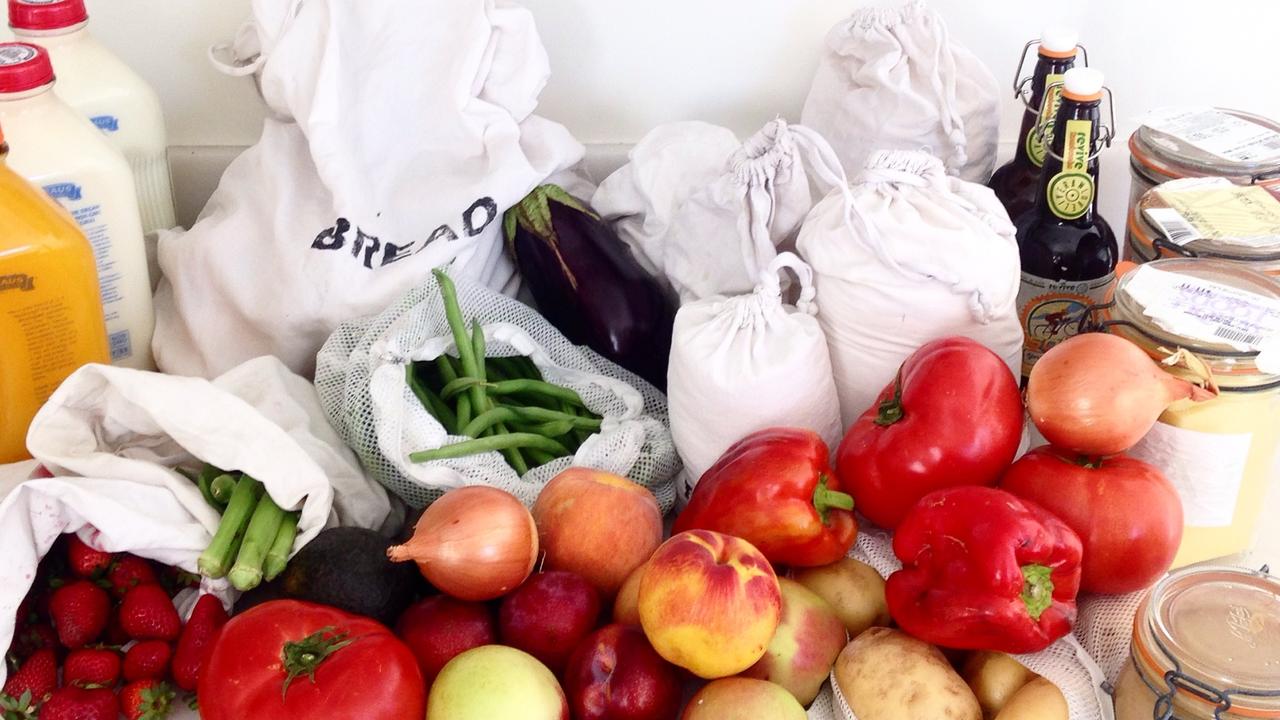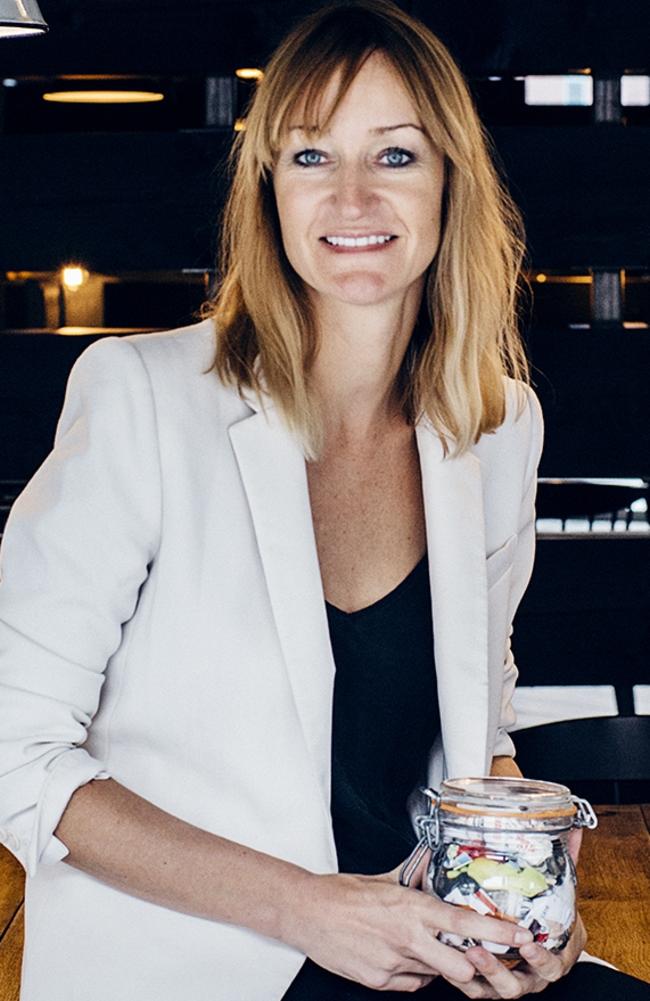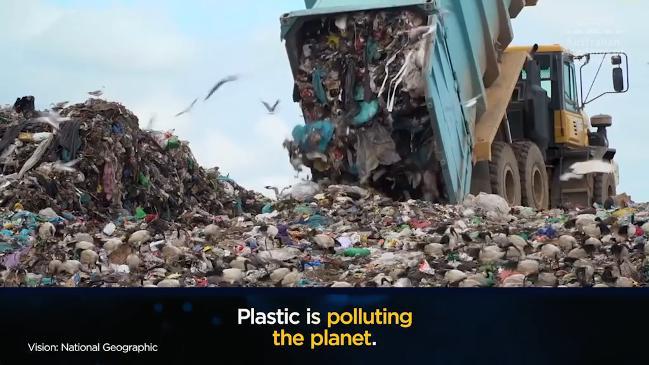Why you should stop throwing your money away
SOME of the household items you buy all the time are costing you huge amounts of money without you even realising it.

WHEN the first article about Bea Johnson and her zero-waste lifestyle was published, it attracted a barrage of criticism and hate.
“The first story came out in the New York Times in 2010 and it got a ton of criticism, we got hammered,” Ms Johnson told news.com.au.
“People didn’t know what we were doing and they were associating it with an environmental way of living, that we were basically hippies, living in the woods.
“They said it was disgusting and that we were depriving our children of the good life.”
Ms Johnson said she could only laugh at people’s reaction to her choices.
“You can’t call it deprived just because you are not giving your children burgers from McDonald’s and giving them real burgers instead, served on real plates.”
Eight years later, millions of people around the world have come to agree and Ms Johnson has become a modern phenomenon. Her zero-waste lifestyle has been adopted around the world and images of her holding a small jar containing all of her household waste have inspired millions to reassess their habits.
Ms Johnson, who is in Australia for a series of talks hosted by The Source Bulk Foods, said she lived a “normal, modern lifestyle” despite generating practically no waste.
It’s taken years for her to refine her approach, which she explains in her book Zero Waste Home, and she understands that it can take a long time for people to change their habits.
“Even refusing what you do not need — learning to say no — even that can take a long time as we are ingrained to reach out when someone hands us something,” she said.
“But if you say no, you will be amazed at how much waste you can stop coming into your home.”
It’s one of the reasons why she doesn’t agree with those who say zero-waste living is something only wealthy people can afford to do.

“Maybe it’s because people think that those who have money, have a choice,” she said.
“But we started doing this in the midst of a recession, my husband had quit his job to start his own consultancy and things were financially tight in our house.”
Ms Johnson said going zero waste helped her reduce her household costs by 40 per cent. Her approach is guided by five steps, followed in order: Refuse, reduce, reuse, recycle and rot.
The first step is to refuse disposable items such as free plastic bags, straws, promotional mail, free pens from conferences or even party favours at a children’s party.
“We are pounded by these ‘free’ items but every time we accept them, we create demand to make more,” she said. “They add to the clutter in your home and also add to the trash problem.”
This first step doesn’t cost her anything and the others also encourage the reuse of items, buying second-hand and buying less stuff in general.
“We consume way less than before,” she said. “When we went on a trip before we used to bring back souvenirs, when my mother came to visit we would go shopping. These activities had become hobbies and we were automatically drawn to purchasing things.”

Ms Johnson said no matter how much money someone had, if they spent it on trivial things they didn’t need — even something as small as a packet of coloured hairpins — it was a waste of money.
“We only buy what needs to be replaced, so if a sneaker has a hole in it, we buy a second-hand replacement, which costs less,” she said.
While Ms Johnson acknowledged that some package-free bulk foods could be more expensive than the supermarket versions, she said they were often organic or higher quality and could be better for people’s health in the future.
She also pointed to expert research into how people shop when they go to discount places.
“If you buy a huge beef tenderloin that’s really cheap, if you don’t finish what’s on your plate, you don’t care,” Ms Johnson said. “If you buy a huge bottle of shampoo, you might use large quantities of it and you don’t care much if you spill or don’t finish the container.
“You may spend less but you end up wasting more, so you end up wasting your money.”
RELATED: What I learned from trying to live zero waste for a year
Living zero waste also means not using disposable items. Ms Johnson has swapped out paper towels for rags and uses handkerchiefs instead of boxes of tissues.
“You’re literally throwing your money away,” she said of most people’s attachment to disposable items.
While many may see her approach as quite extreme, Ms Johnson believes she has developed a lifestyle that is sustainable.
“I tested out extreme measures, I got wrapped up in making my own cheese and bread but I realised there was no way I could stick to it,” she said. “So I let go of extremes and found simple alternatives.
“I’ve discovered an improved standard of life, of financial savings, of time savings and I’ve discovered happiness that is hardly describable in words — a life based on being rather than having.
“We are no longer throwing money away, we are spending on activities and moments and that’s what makes our life richer.”
Ms Johnson said she didn’t want people to be discouraged by the term zero waste and said any change at all was a step in the right direction.
“The zero waste lifestyle has amazing advantages that go way beyond just doing something good for the environment.
“This lifestyle is about living simply, first and foremost.”
THE FIVE R’S OF ZERO WASTE
Refuse what you do not need.
Reduce what you do need.
Reuse by using reusables.
Recycle what you cannot refuse, reduce, or reuse.
Rot (compost) the rest.

Email: charis.chang@news.com.au | Twitter: @charischang2




